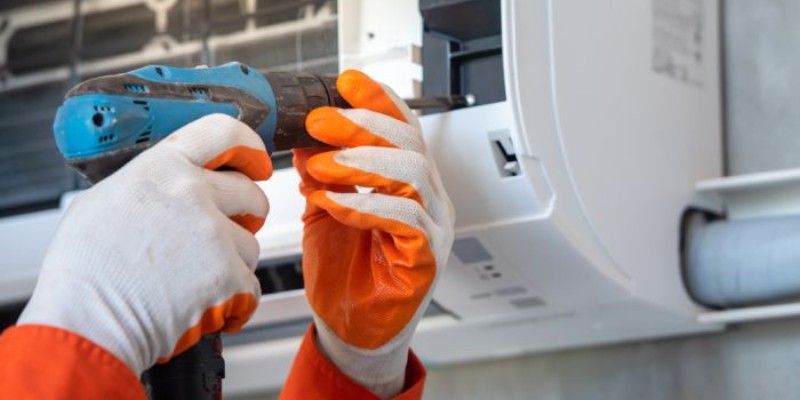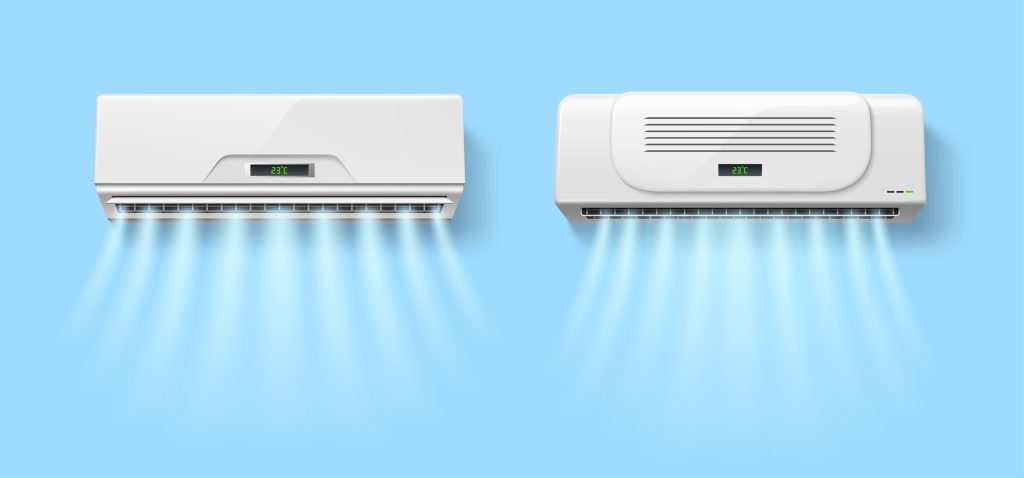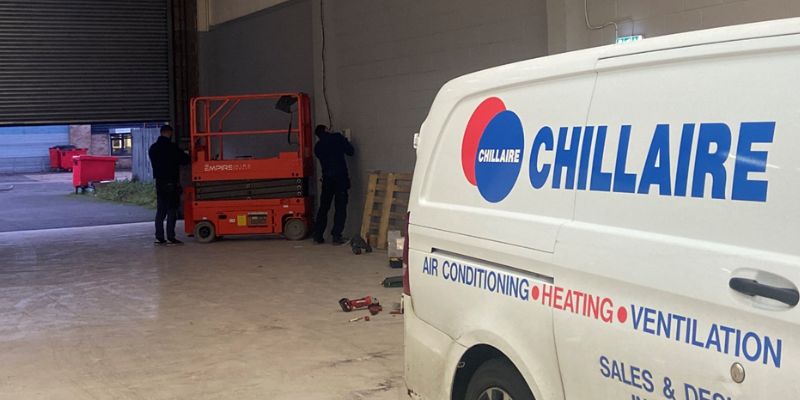
How Do Air Conditioners Work?
Air conditioners are now widely manufactured, distributed and used, but how do air conditioners work? How air conditioning works is often insufficiently explained. For people trying to diagnose problems with their air conditioning system or explain faults to an engineer, it can be challenging.
Although they come in a variety of types, shapes, forms and sizes, most air conditioners have the same foundation. Today we are going to provide some more information on the inner workings of air conditioners: answering ‘’how do air conditioners work?’’.
Here at Chillaire, our engineers are always asked the same question: ‘’how do air conditioners work?’’. We use air conditioners constantly, in a variety of settings. Whether you belong to the domestic sector or you work in the commercial or industrial sector, you will, undoubtedly, have used or come across an air conditioner at some point. We often use appliances blindly without much knowledge of their inner workings, or how they provide the end result. Whilst, for the most part, this is fine, it is helpful to have some insider knowledge when an appliance breaks down and you are trying to diagnose or fix the problem.
The simple explanation for how air conditioning works is that it removes heat and moisture from the air inside a building, therefore cooling the air inside.
The Air Conditioning Basics
Now we have an understanding of the purpose of an air conditioner, let us delve a bit deeper into some air conditioning basics. There are two components that make an air conditioner work. You have a specialised gas called a refrigerant, and then you have the mechanical system which is made up of a compressor, a condenser coil, expansion device and an evaporator coil. All of these elements work harmoniously in the background to provide your indoor room or space with cool air.
Going further, these components all work to convert the refrigerant from gas to liquid and back again. The role of the compressor is to alter the pressure and temperature of the refrigerant. This is then sent to the condenser coil where it is converted to liquid. The gas refrigerant enters the evaporator coil where it, you guessed it, evaporates with the aid of the expansion device. This causes a state change and heat from the room air passing through the evaporator cools the indoor coil in the process.
As the fan blows indoor air across this cold coil, heat inside the room or space is absorbed by the refrigerant. Cool air now circulates throughout a space whilst the heated gas returns to the compressor. The excess heat is dispelled outside as the refrigerant returns to its former liquid state. This cycle continues quickly and continuously until the right temperature is reached.
So for anyone wondering ‘’Do air conditioners take in air from outside?’’, the answer is no. This is not how your air conditioning system is designed. Rather, your system uses its fans to draw in air and disperse it through its inner structure. In essence, it is recycled air that passes through coils which cool it down before redistributing it. However, systems can be designed that bring in fresh air if required.
 Benefits of Air Conditioning
Benefits of Air Conditioning
It is important that we have functioning and well maintained air conditioners. A common air conditioning system has a variety of benefits to homeowners and business owners alike. For example, air conditioners help to improve indoor air quality.
Some air conditioning systems have dust filters which help to capture dust and pollutants chiefly to ensure the smooth running of the internal mechanics. But these have a positive effect on air quality. Some modern air conditioners even have air purification systems built in.
Moreover, air conditioners remove moisture and warmth from indoor air which helps to tackle excessive humidity. This is important for helping to combat damp, as well as tackling a number of health problems we are susceptible to in humid environments.
Lastly, an air conditioner simply creates a more comfortable environment and atmosphere. In the summer or in countries that have a significantly warmer climate, air conditioning becomes extremely valuable. Office or factory workers are also able to carry out their tasks in a comfortable environment thanks to the availability of modern air conditioners.
How Air Conditioning Works by Chillaire
We hope any one who arrived at this article asking ‘’how do air conditioners work?’’ now has a better idea of how these systems operate. With a little more knowledge about the individual components, the task of identifying and diagnosing issues is made that bit easier.
If you are having problems with your air conditioner and are based in the Midlands, we at Chillaire can help. For any client in the industrial or commercial sector, we can maintain, service and repair air conditioners or heat pumps. With years of experience and an expert team who have completed countless jobs, no task is too big, small or complex for us. To contact us today to find out how we can help you, click here.



